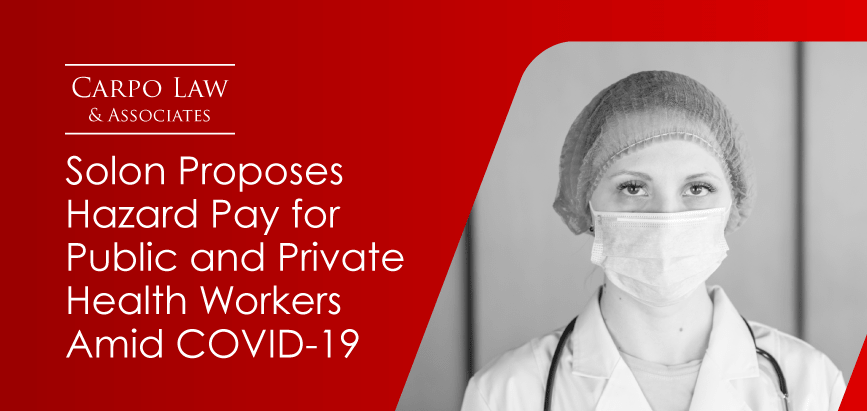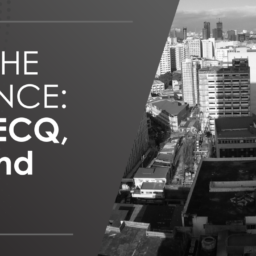
Solon Proposes Hazard Pay for Public and Private Health Workers Amid COVID-19
Magdalo Para sa Pilipino Party-List Representative Manuel Cabochan III proposes a bill providing hazard pay to health workers during the COVID-19 pandemic.
The bill was proposed to the House Committee during the 18th Congress Second Regular Session on August 25.
House Bill No. 7459, also known as the COVID-19 Hazard Pay for Healthcare Workers Act of 2020, seeks to provide hazard pay to all private and public healthcare workers during the COVID-19 pandemic.
Cabochan states, “The provision of hazard pay for healthcare workers is imperative for the fulfillment of their duties. It is the responsibility of the government to protect and ensure the welfare of our healthcare workers.”
Under Administrative Order No. 26, signed on March 23, government personnel currently receiving hazard pay must choose between regular hazard pay and COVID-19 hazard pay.
HB 7459 covers all healthcare workers in the public and private sectors such as medical practitioners, staff and aide in hospitals, sanitaria, rural health units, main health centers, health infirmaries, barangay health stations, clinics, laboratories, and other health-related establishments that are exposed to the disease.
Such health workers shall be compensated with hazard allowances equivalent to 30% of their basic salary. The pay shall be different and separate from the existing hazard allowances granted to them before the proposal of the bill.
Additionally, the bill will continuously compensate the hazard pay to health workers until the Department of Health (DOH) and the World Health Organization (WHO) officially declares that the COVID-19 pandemic has ended.
Cabochan also noted that the hazard pay or its equivalent will not be subject to tax.
DOH and the Department of Labor and Employment (DOLE), along with appropriate government agencies and stakeholders, are tasked to formulate the implementing rules and regulations (IRR) of the proposed bill within 60 days from the day the bill takes effect.

